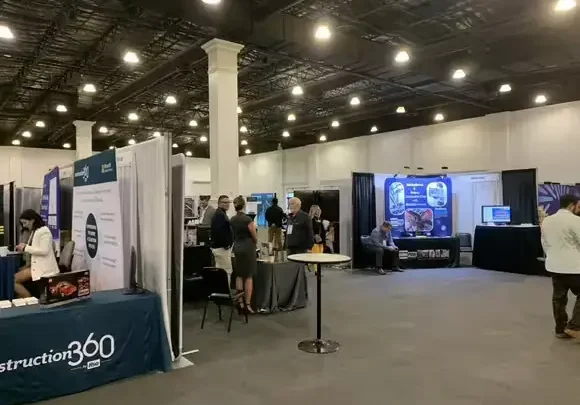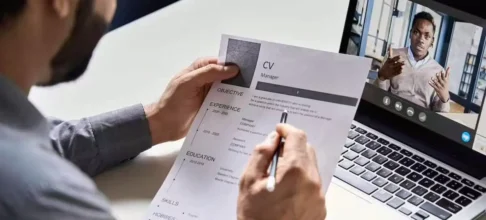This audio is auto-generated. Please let us know if you have feedback.
SAN DIEGO — Across the country, construction firms are using artificial intelligence to improve their safety cultures, monitor their legal documents for questions and issues and manage project risk.
Speakers and panelists from firms including Balfour Beatty, Rosendin and Joseph J. Albanese spoke to attendees at the ENR FutureTech conference in San Diego from June 3-5 about the benefits they’ve reaped from AI.
AI dominated contractors predictions as one of the breakout technologies of the last yearand since then has changed how business gets done across the globe. However, contractors have also urged cautionas the technology remains in a Wild West-like state At the conference, speakers said many aspects of the tech’s impact on construction still remain unclear. That’s especially true when it comes to AI and the labor crunch.
“I don’t think we have a good answer as to how AI will affect the workforce. Clearly, it will. We're gonna need to figure out how to deal with it and what to do with it,” said Jad Chalhoub, director of business analytics for San Jose, California-based Rosendin.
Joseph J. Albanese and AI-driven safety
Contractors are thinking about ways to make the technology work on the safety side.
That’s what John Messing, the executive safety director at Santa Clara, California-based concrete contractor Joseph J. Albanese is looking to solve via FactorLab, a Pleasanton, California-based firm that uses software and data to help customers on risk- and safety-related issues.
Messing said his company wanted to address challenges around safety, including the buy-in from workers on the ground when it comes to safety culture in daily planning conversations.
Leveraging SmartTagIt, a safety data analysis solution from FactorLab, supervisors gave their morning safety debriefs while a camera recorded their talks. The software automatically transcribed these conversations and translated them from Spanish to English, or vice versa, when necessary.
With that information, Messing said he can now review remotely what’s already been discussed by leadership before he steps on the jobsite. The software also assigns a score and pulls metrics from the safety talks, based on how closely they cover assigned topics across four different categories.
“When we're able to hear the workers' voices, we found that that's really critical. It's important that we understand that piece. And once we have that information on a large scale, we can actually take some action on that,” Messing said.
For example, if a supervisor’s score is low based on the data the company can mine from the recorded conversations, Messing can work with and coach them on ways to get a higher score.
Messing said that the technology has actively transformed his company’s safety culture. He pointed to a meeting the firm held with some of their supervisors. When they saw their scores and metrics from their own conversations, what brewed was a friendly competition, Messing said.
“These guys are looking at their conversations and seeing how they're doing. There's engagement. There's excitement surrounding this,” Messing said.
Balfour Beatty’s legal helper
Contracts are long, complicated and full of information that’s hard to find unless you know exactly what you’re looking for. AI can help, said Jeff Brannen, chief legal officer for Texas at Balfour Beatty US.
Brannen uses Document Crunch, a startup based out of Atlanta that leverages an AI model to search, evaluate and mark up contracts for users based on queries they file and risks that builders may face on the jobsite.
Brannen said that if someone asks him a question about a contract that’s been uploaded to the model, such as “what do we do if there’s a delay,” he can type the query into Document Crunch’s service, and it flags all the instances of the contract where language around delays is present.
With the service, Brannen can now have the project teams use the software for their own queries about contracts on their jobs.
“To me, that's a big time saver and a huge change for us,” Brannen said.
AI on its own, when trained on documents, can work for this function, but lawyers have been cautious about using models like ChatGPT for contract generation, for example, which could eventually lead to issues around confidentiality and plagiarism. Other lawyers have run into issues with AI apps creating nonexistent case law when using the tools to help them write briefs.
Rosendin’s forays into AI
Chalhoub compared AI’s ability to provide correct, complex information, paired with its penchant for inaccuracies or even making things up to a “drunken Albert Einstein” during his keynote session, “Deconstructing AI to Improve Construction,” on June 3. The risk there, he said, is that the bots sound authoritative, even when they’re wrong, which could lead users to take the information at face value.
“I'm assuming if you're talking with Einstein, when he's drunk, he would probably answer you very correctly to most of your questions,” Chalhoub said. “But, if anyone were to convince me that the earth is flat, it would probably be a drunk Einstein.”
Chalhoub told attendees about Rosendin’s experimentation with AI around the company’s unstructured data and production foundation models, or AI shells that can be packed with the firm’s information. Those shells can then be used to gain insight about current business processes.
For example, Rosendin is currently investigating what Chalhoub says some startups call a “GPT for everything” solution. The model would take all of Rosendin’s data, such as blueprints, specs and contracts, and dump all that information into an AI model which can then be queried with specific questions about jobs.
While Chalhoub isn’t building this himself, he is working with several startups to see if there’s a fit with Rosendin about how, combined, the companies can leverage these kinds of models.
The hope, Chalhoub said, is that you can ask it any question, and that it can answer correctly.
Chalhoub said Rosendin keeps the process offline when it enters proprietary data into the tech, to avoid security concerns around data privacy and security, for example.
But ultimately, with the amount of data available to feed into the tech, he said, that approach has proved bigger than his single firm.
“This is not one frontier that I think we should, as individual companies, attack,” Chalhoub said. “I think this is best, attacked at the industry level through a couple of different startups, or something like that, because it's a big undertaking.”















